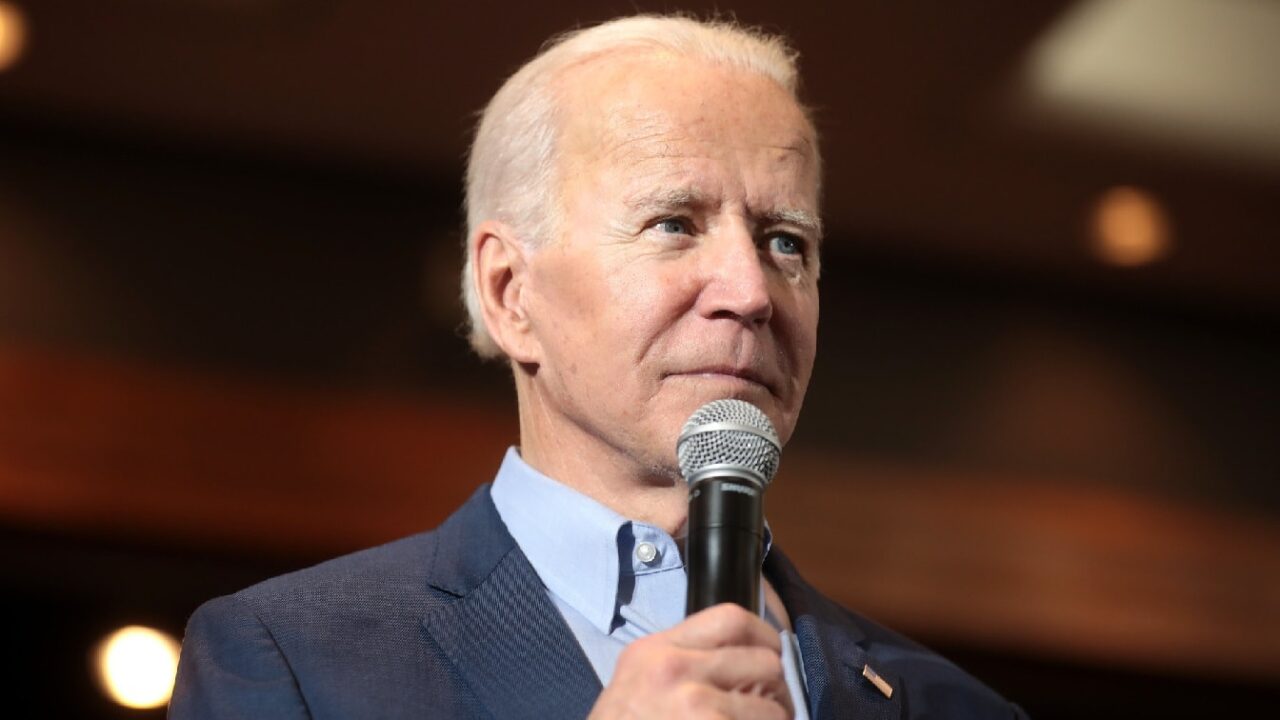The two speeches by world leaders on confronting Russian President Vladimir Putin’s aggression offered a stark contrast. Ukrainian President Volodymyr Zelensky issued a passionate appeal for additional help for his people as they are being brutalized by Russian invaders. And then there was President Joe Biden, who opened his own speech by commenting on Zelensky’s remarks to Congress.
“I listened to it in the private residence, and he was convincing,” Biden said of the Ukrainian leader. “And — significant speech.”
But not so convincing that Joe Biden was willing to reconsider his opposition to a no-fly zone over Ukraine, one that would require at least a willingness to shoot down Russian planes as a primary enforcement mechanism. And what about the transfer of Polish MiGs to Ukrainian forces?
“I’m not going to comment on that right now,” Biden told a reporter who asked at the conclusion of his talk. “I’m not going to comment on anything other than what I told you.”
The White House has found itself on the defensive over its response to the Russian invasion of Ukraine. Sometimes literally. “Can you lay out for us why the administration sees MiGs as provocative and javelins and stingers as not provocative?” asked Fox News’ Jacqui Heinrich. Press secretary Jen Psaki replied, “Well… javelins and stingers are defensive weapons. MiGs are planes that are offensive weapons which are a different…military system.” It was the beginning of several exchanges making the offensive-defensive aid distinction concerning what lethal aid to Ukraine the Biden administration was willing to provide.
Newsmax White House correspondent James Rosen observed that Putin “was told at the outset he would never face military intervention by the United States and NATO, that the full range of the punishments he would face would amount to diplomatic and economic sanctions.” Rosen then said, “I think a lot of people wonder why a greater effort wasn’t made to leave Mr. Putin in doubt about the consequences he might face.”
Biden’s entire speech, following on the heels of Zelensky’s, was a defense of what his administration has done to counter Putin. “America is leading this effort, together with our Allies and partners, providing enormous levels of security and humanitarian assistance that we’re adding to today and we’re going to continue to do more in the days and weeks ahead,” he said.
“The American people are answering President Zelensky’s call for more help, more weapons for Ukraine to defend itself, more tools to fight Russian aggression,” Biden continued. “And that’s what we’re doing.”
Biden has not exactly channeled Winston Churchill in his eloquence on the war in Ukraine. He sent his aides out to talk about how his sanctions will deter Putin, then said nobody “expected the sanctions to prevent anything from happening…. he’s [not] gonna say ‘oh my God, these sanctions are coming, I’m gonna stand down.”
Just because Biden is not Churchill, however, does not make him Neville Chamberlain. Putin’s conquest of Ukraine is coming at great cost not only to the Ukrainian people, but also to the Russians themselves. The ruble has collapsed. Russia’s economy could contract by 35 percent. There are credible estimates that Putin had already lost 7,000 troops in less than three weeks, more than the American death toll in Iraq and Afghanistan combined after twenty years of war. Morale is low and progress toward Kyiv is slow.
Biden has been attempting a delicate balance of fortifying Ukraine’s defenses and increasing the already staggering cost of Putin’s misadventure to Russia while avoiding drawing the U.S. and NATO into a wider war. Such a broader conflict would raise the risk of nuclear war. It is not in America’s interests and if it merely prolongs the fighting in a way that results in more Ukrainian deaths, it may not even be in Kyiv’s.
What this policy will not do, however, is yield results quickly enough for the disturbing images on cable news to go away anytime soon. An increasingly desperate Putin will lash out, inflicting even greater atrocities on Ukraine while Biden faces growing pressure to intervene more directly. Putin’s behavior is rightly offensive to Western liberal sensibilities and is likely to worsen.
Can Joe Biden hold the line? As inspiring as Zelensky’s words might be, much is riding on our president’s deeds.
W. James Antle III is the Washington Examiner’s politics editor. He was previously managing editor of the Daily Caller, associate editor of the American Spectator, and senior writer for the American Conservative. He is the author of Devouring Freedom: Can Big Government Ever Be Stopped? You can follow home on Twitter: @Jimantle.

